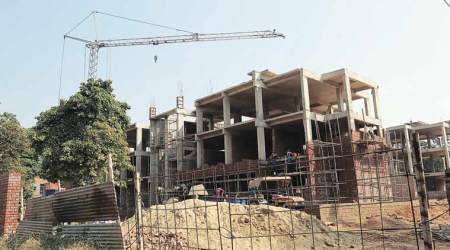 Real estate is a sector where the entire life savings are put in the trust of a developer or an agent and when the product is not delivered, there is untold misery, harassment and hardship, leave alone the financial loss.
Real estate is a sector where the entire life savings are put in the trust of a developer or an agent and when the product is not delivered, there is untold misery, harassment and hardship, leave alone the financial loss.
The Real Estate (Regulation and Development) Act, 2016, or RERA, was finally notified and consumers all over lauded the step taken by the Centre. It is well known that the real estate industry in India is a highly unorganised and poorly regulated business. The enactment of this legislation was a historic step. However, without the notification of the rules and the creation of the institutional infrastructure to implement the provisions, the mere enactment of a statute can bring little succor to the citizens.
For over a decade, discussions have been held on various platforms on the need for creating a regulator for the real estate sector in India. Consumer organisations have been crying hoarse on the urgent need to rein in the real estate developers and agents.
Real estate is a sector where the entire life savings are put in the trust of a developer or an agent and when the product is not delivered, there is untold misery, harassment and hardship, leave alone the financial loss. While segments of the industry have been advocating self-regulation in an era of liberalisation, others have been advocating for strong legislation to regulate the private sector so that gullible consumers are not cheated.
Objectives
The well meaning objectives of the legislation are a) to ensure accountability towards allottees and protect their interest; b) to infuse transparency, ensure fair play and reduce frauds & delays; c) to introduce professionalism and pan-India standardisation; d) to establish symmetry of information between the promoter and allottee; e) to impose certain responsibilities on both promoter and allottees; f) to establish regulatory oversight mechanism to enforce contracts; g) to establish fast track dispute resolution mechanism and h) to promote good governance in the sector which in turn would create investor confidence.
Dates to keep
The Central legislation came into effect on May 1, 2016, and the rules were to be notified by October 31, 2016. The deadline was extended up to July 31, 2017. However, many states are yet to notify the rules. The Real Estate Authority and Tribunal were to be established by April 30, 2017 ie. within 1 year of the notification of the Act.
While it was decided that the deadline for notifying would be July 31, 2017, the same is yet to be fully complied with. Further, even though the websites are up, promoters and agents are yet to upload their registrations in many cases.
Status of compliance:
Delay and dilution
Out of the 29 states, only 15 states have notified the state rules under the Act, while all the 7 union territories have notified. A list of the states who have notified the rules are given below:
One can see from the table that the implementation is far from satisfactory. In addition to notifying the rules, the Authority and the Tribunal also have to be set up, a fully working website has to be set up and developers and agents have to register. We find that in all these, there is much work yet to be done. Further, when we look at the provisions, particularly for the ‘ongoing projects’, provisions have been diluted. The penalty provisions, specifically the imprisonment provisions for the developers have been diluted, thereby taking the teeth out of the legislation. A large number of projects and agents are yet to register and dates are being further extended to August 15, 2017.
Consumer agitation and litigation
Delay in delivery has been a bone of contention for property buyers in many states, particularly in Uttar Pradesh. Noida and Greater Noida have hundreds of real estate projects which have been delayed beyond reasonable time limits. There are many projects that have missed the delivery dates by nearly 10 years. The delay and dilution of the RERA has obviously agitated the homebuyers. Consumers who have come together under the banner of the Noida Extension Flat Owners Welfare Association (NEFOWA) have been thinking of challenging the RERA in Uttar Pradesh in the high court. The buyers have also called for a protest at the Greater Noida Industrial Development Authority (GNIDA) on August 10.
When the announcement came initially, there was much joy in the minds of the consumers as they thought that the government has finally heard their voices. However, with the delay and dilution, the consumer feels cheated.
A case of conflicting interests
The story of RERA implementation is a case of conflicting interests. The Central government is keen on reforming and cleaning up the real estate industry. In this effort, it has brought in the RERA legislation. It has also brought in several other measures such as demonetisation, benami property legislation and pushed ‘affordable housing’, to bring about a comprehensive set of change in the sector.
However, for the business, RERA is seen as a hindrance. For long, the real estate industry gave a fight on the plank of need for ‘self regulation’. Now that they have realised that the government at the Centre is in no mood to relent, they have accepted RERA but are trying to lobby with state governments to dilute provisions. In a polity of federalism, state governments have the key role to play in the implementation of RERA.
For long, the nexus between politics and the industry has emerged time and again. The argument put forward by the industry is that the provisions are harsh as many areas are outside the direct control of the developer and it is the government which is responsible for delays, particularly when it comes to approvals and infrastructure provision.
Ultimately, it is the consumer who has put his hard earned life savings and trust in the project who is affected. Most of the time, the financial loss is greater as the moneys given to the developer are sourced from loans which obviously carry an interest burden. In addition, it is the trauma. Unfortunately, the lobby of the consumer has been a weak link in the whole chain of events in RERA. Hopefully, more agitations from the consumers will pressurise the state governments to hasten the implementation and ensure speedy delivery.







